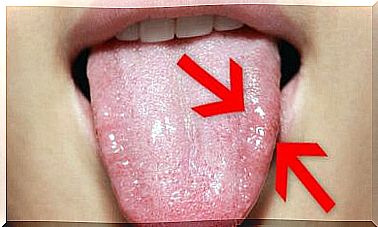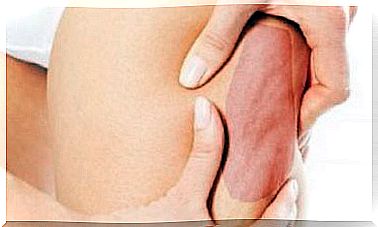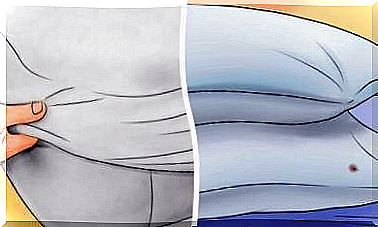Causes Of Chest Pain In Coughing
Chest pain in coughing is very common when one suffers from certain conditions of the respiratory system. What are the causes ?

The sensation of pain in the chest when coughing is a symptom that can alarm us. We tend to relate it to the lungs or the heart and it reminds us of a significant health problem.
Causes of chest pain when coughing

Chest pain when coughing is very common in diseases of the respiratory system. In this article, we explain the main causes.
Influenza
The flu is one of the most common viral infections around the world. It usually appears abruptly with intense symptoms from the first moment. The main symptoms of the flu are:
- Fever
- Headache
- Chills
- Muscle and chest pain
Flu symptoms are often stronger and last longer than those of a cold. Chest pain is quite common with the flu. In the presence of cough, this symptom may even increase.
Common cold
The common cold is an infectious viral disease of the respiratory system. It is more common in children than in adults. In addition, his symptoms are very intense during the first 3 days.
However, in addition to the general discomfort, sore throat, and increased mucus, cough is one of the most common symptoms. A regular or strong cough can cause chest pain.
Symptoms of the common cold appear gradually around the third day of contagion. They last about a week. Here are the main symptoms:
- Nasal congestion
- Frequent sneezing
- Sore throat
- Permanent cough
One of the main causes of chest pain when coughing is the fact that it affects the respiratory system .
Acute bronchitis
Bronchitis represents inflammation of the bronchi. As a result of infection or inflammation in the bronchi, breathing capacity decreases. Symptoms generated by bronchitis are:
- Wheezing
- Mucus
- Cough
- Pain in the chest and back
The main cause of acute bronchitis is usually a viral infection, often due to a badly treated cold. However, it can occur as a result of a bacterial infection.
Asthma and chest pain with cough

Asthma is a chronic condition that causes narrowing of the airways as a result of inflammation. It therefore affects the airways by inflaming and narrowing them.
If not diagnosed and treated properly, it is very common to experience difficulty breathing, wheezing, and chest pain when coughing. The symptoms of asthma are as follows:
- Difficulty breathing
- Cough with mucus
- Wheezing
- Chest pain when coughing
Pneumothorax
Pneumothorax, also known as collapsed lungs, occurs when the lung is punctured in one place and air escapes.
The direct consequence of pneumothorax is that the space around the lungs fills with air. This then prevents the lungs from expanding and leads to obvious symptoms such as chest pain and lack of air.
This is because the pressure caused by the air outside the lungs generates pain in the chest which is worse when coughing.
Musculoskeletal injuries and chest pain in cough
When we have an injury to the muscles or bones in or around the chest, the pain gets worse when we cough. Cracks or fractures in the ribs, rib cage, breastbone, or spine cause severe pain in the chest when coughing. It is a pain that can also occur just by breathing, standing up, or performing certain movements.
Costochondritis
The ribs, except for the last two, are connected to the breastbone by cartilage. When this cartilage inflames, then occurs a lesion called costochondritis, or chondrosternal syndrome.
The main consequence is a sharp, sharp pain in the chest that intensifies when coughing or performing certain actions. Costochondritis is one of the main causes of chest pain when coughing. Among these are:
- Thoracic lesions
- Weight lifting
- Respiratory tract infections
- Exerting too much effort while coughing
- Certain types of arthritis
Conclusion
Finally, as we have mentioned, chest pain when coughing can have its origin in various infectious processes and diseases. Therefore, if it is not a simple cold, it is advisable to consult a specialist.









